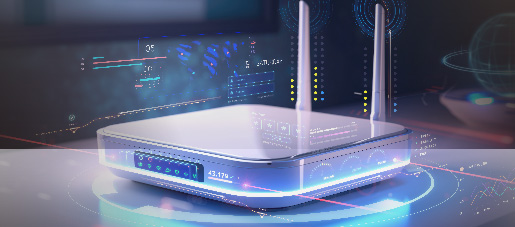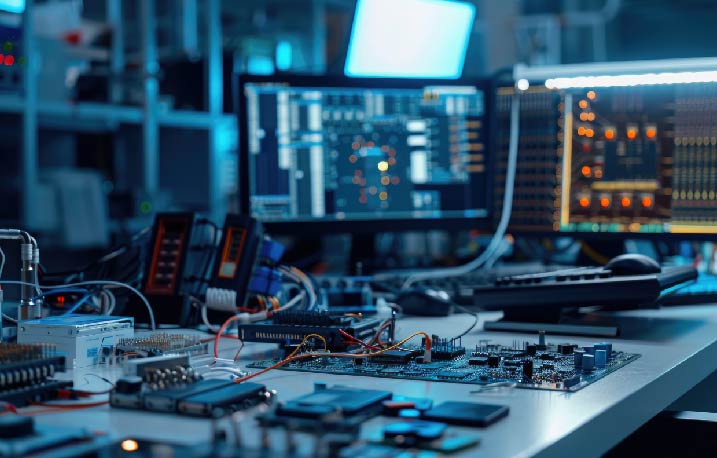With the growth of technology, the need for data storage, computation, transmission, etc., continues to increase. Therefore, setting up high-density Data centers / Servers has become particularly important for business infrastructure and national infrastructure. With the accelerated development in areas such as the Internet of Things, cloud storage, big data utilization, artificial intelligence, and 5G, the construction and demand for data centers will also become increasingly enormous. Data centers operating continuously throughout the year generate high-density waste heat, primarily produced by several servers in each rack. Failure to effectively dissipate heat can easily lead to system overheating and malfunction, thus the use of fans or water cooling to achieve heat dissipation is relatively important for the stability of server performance in data centers.
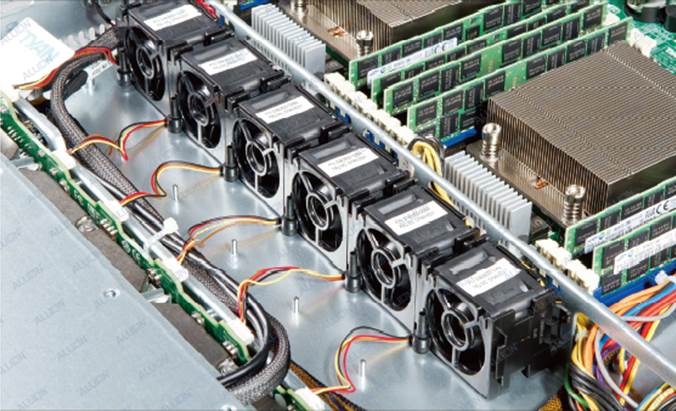
What are the Potential Risks of Server Fan Overheating?
Operating for extended periods in high-temperature environments, the plastic materials used in server fans may become brittle due to heat, leading to damage and possible reduction in fan efficiency. Decreased fan efficiency affects server cooling efficiency, causing internal components to overheat and damage. Component damage may result in server malfunction, data loss, or system crashes. This outcome leads to application service interruptions, even customer data loss, resulting in negative user experiences such as customer complaints.
Real Case Study Sharing
Based on Allion’s many years of experimental experience, we explain practical cases: during long-term reliability verification of a customer’s product, we found that although the fan continued to rotate, its plastic material had begun to become brittle and cracked. Therefore, even though the fan was still operating, we considered such phenomena as problematic.

Allion Provides Three Major Solutions
Allion has extensive project experience in the reliability verification of server fans and has developed a set of solutions to provide services. Allion has independently designed and developed a set of fan-specific testing fixtures, which are modular and can support testing of up to 15 fans simultaneously.
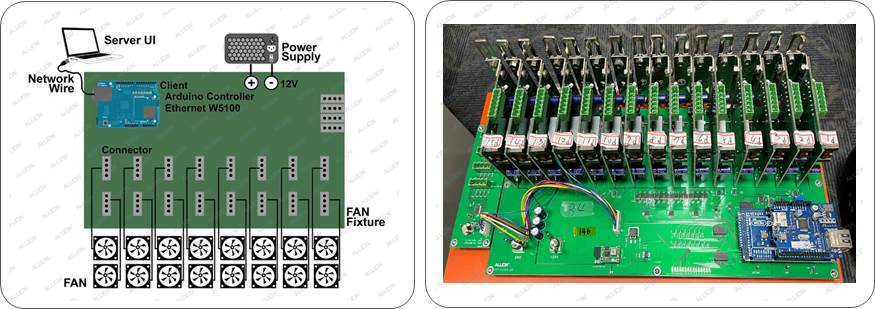
Additionally, Allion has developed test automation software that can virtualize the 15 fans supported by the fixture into three groups, each performing different test items, such as Full Power Mode or Power Cycle Mode. During testing, the software also monitors and records data such as current, voltage, and speed of each fan, and can set different notification methods in case of abnormalities.
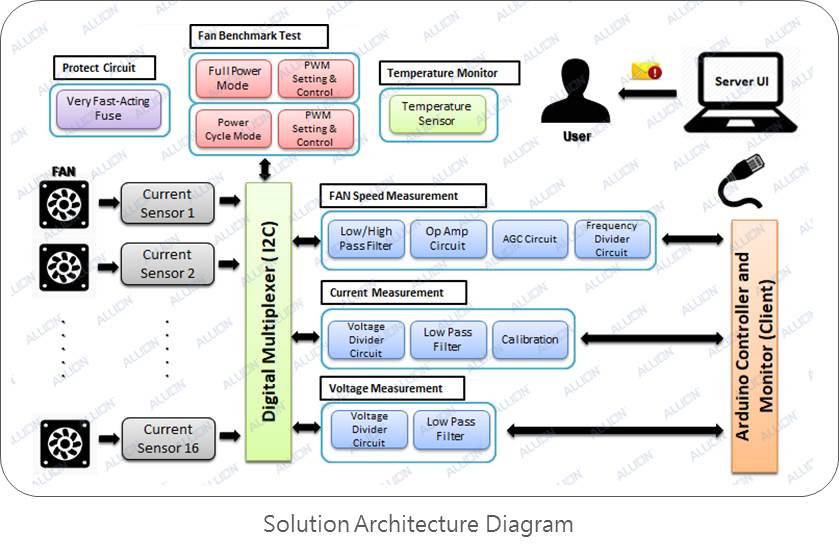
Finally, Allion also has temperature chambers of different specifications for reliability verification. Whether it’s the size of the internal space or the specifications for temperature and humidity, they can meet customer requirements.
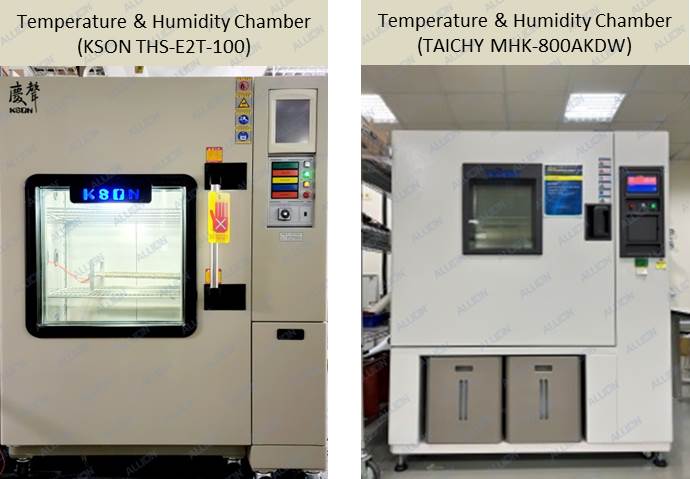
Allion can assist customers in meeting fan specifications by utilizing temperature and humidity change cycles for long periods, combined with our independently developed solutions to simulate scenarios such as fan speed changes and power cycle modes to verify fan reliability.
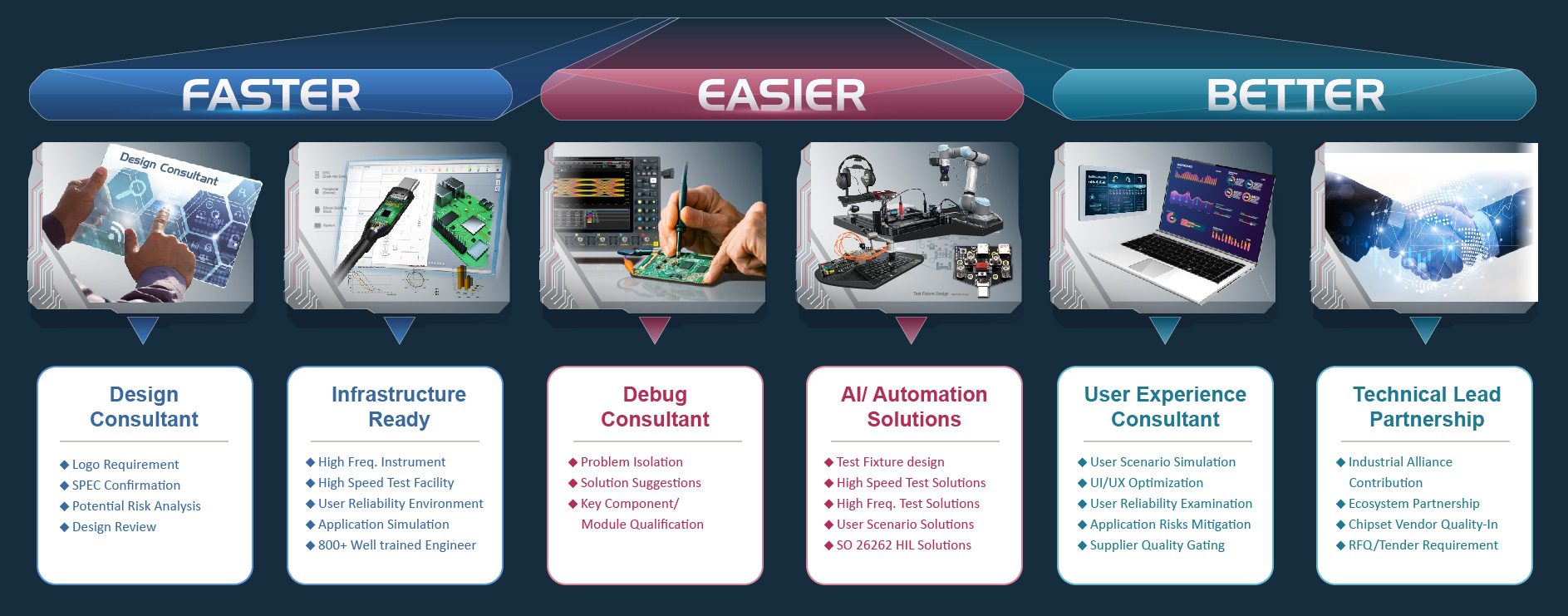
If you have further requirements for reliability-related consulting services, please feel free to contact us by filling out the form!
Inqury Form















